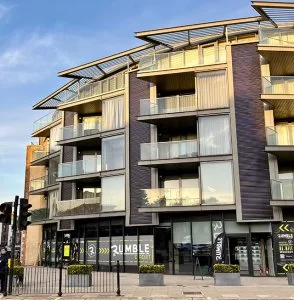Trespass
Trespassing and the Law
Trespassing can affect residential and commercial property and cause serious issues for landowners. Our experienced team can assist with legal action, including injunctions and damages, to ensure that your interests are protected.
Table of Contents
What is trespassing?
Trespassing happens when someone:
- Enters a property without the owner’s permission, or
- Enters a property with permission, but then refuses to leave when the permission is withdrawn.
The most obvious example of this is when someone walks into a private property without the owner’s consent. However, many instances of trespassing are more subtle and can often be unintentional. The following scenarios give you an idea of its scope:
- Parking on someone’s land without consent.
- Using private land as a shortcut.
- Gatherings, raves or camping on private land without authority.
- Leaving personal belongings or litter on someone else’s property (fly-tipping).
- Staying in a car park past closing time.
- Squatting.
- Flying drones into someone’s airspace.
- Encroaching across a boundary line.
Since trespassing is so broad, it can lead to a lot of confusion and disputes between parties involved. Our property dispute lawyers provide clear and practical advice, whatever the circumstances. We focus on finding a fast and favourable resolution for you, with court action only as a last resort to stop costs escalating.
Is trespassing a crime?
Trespassing is a civil offence. This means that a property owner can sue the person who has trespassed on their land and seek remedies such as:
- Damages for the harm caused.
- Injunctions to stop the person from trespassing again.
- Possession orders to get the person removed.
The specific remedy will depend on the circumstances of the trespass. It is advisable to seek legal advice before taking any legal action.
The police do not have the power to assist with civil offences. However, in certain circumstances, trespassing can also be a crime—breaking and entering and squatting in a residential property are examples of criminal trespassing. In these cases, the police can be involved and may arrest or charge the trespasser. If convicted, the trespasser can be fined or given a minor prison sentence. If a trespasser occupies land continuously for a certain period, they may be able to claim legal ownership through adverse possession, which is a separate area of law we can assist with.
What legislation is used to deter trespassing?
Civil trespass is a type of nuisance, which is a type of tort law. Tort law is a civil wrong that causes harm or loss to someone else. In this case, the trespasser has caused harm by entering onto another person’s land without permission. Since nuisance is a private matter, there are no trespassing laws that cover this type of trespassing.
On the other hand, criminal trespass is covered by specific legislation. In England and Wales, much of the key legislation is included in The Criminal Justice and Public Order Act 1994, The Legal Aid Sentencing and Punishment of Offenders Act 2012 and The Police, Crime, Sentencing and Courts Act 2022, which introduced changes to the law affecting protest.
Under these laws, some forms of trespass are illegal and may lead to criminal prosecution, including:
- Trespass by hunt saboteurs and activists
- Mass trespass (e.g. raves and festivals taking place on private land)
- Squatting in a residential building
The police are able to direct trespassers to leave land or property where the activity is considered a crime. This means that some types of trespassing can have both civil and criminal consequences, depending on the specific circumstances.
What is aggravated trespass?
One branch of criminal trespass is “aggravated trespass”. This occurs when a person or group of people:
- Trespass on land or in a building, and
- Intentionally obstruct, disrupt or intimidate others from carrying out a lawful activity.
Well-known examples of this would be hunt sabotage or protesting by blocking roads. The police can order any person believed to be involved in aggravated trespass to leave the area. A person convicted of aggravated trespass can face a maximum sentence of 3 months imprisonment and/or a fine of up to £2,500.
What is the procedure for dealing with trespassers?
The best thing to do is to speak to the trespasser, explain that they’re on your property, and politely ask them to leave. You can report the incident to the police if it involves criminal trespass.
In most cases, a simple warning does the trick.
If the trespasser refuses to leave, you can take them to court. Often, the threat of court action is enough. Sending a formal letter to the trespasser, giving them a reasonable time (e.g. 7 or 14 days) to remove themselves from your property, can be extremely effective.
If the person is still on your land after this time period, then you can take legal action to remove the person from your property and seek damages. There is also a fast-track procedure for removing trespassers from buildings (not open land) which can be highly effective if you meet the strict criteria.
Our experienced property disputes lawyers can recommend the best way forward and simplify the process as much as possible.
How do I prove trespassing?
To prove trespassing, you must show that the person entered or remained on your property without your permission or legal right to do so. While you can start a claim against “persons unknown,” if you can find out the names of the trespassers, this will help your claim.
It is useful to take photographs or video footage, and keep a log of people and vehicles entering and leaving the property.Your solicitor can help you put together a strong case and gather the necessary evidence to prove the trespass.
How long do I have to file a lawsuit for trespassing?
The time limit to file a civil claim for trespassing is six years from the date of the incident. However, most cases are started much sooner as landowners want their property back as quickly as possible.
What are the defences to a trespassing claim?
There are several defences that a trespasser can use to defend against a claim of trespassing. These include:
- Consent: The landowner gave express permission for the person to enter their property, or there is implied consent (such as walking on a public footpath through private land).
- Necessity: It was necessary to enter onto another’s property without permission in order to prevent serious harm or danger (such as trespassing to save someone’s life).
- Right: The trespasser believed they had a legal right to enter the property, for example, if they thought they had an easement to use the land or if there was confusion over boundaries.
If you are accused of trespassing, please contact us for advice and assistance. We can help you understand whether defences are available and what your next steps should be.
Can I remove the trespasser myself?
Forcibly removing anyone from your property could land you in serious trouble with the law. You shouldn’t throw their possessions out or physically remove them from the property, as this could result in criminal charges against you.
The best and safest course of action is to obtain a possession order from the court. If the order is breached, you can apply for a warrant of possession. A bailiff or High Court Enforcement Officer will then be able to physically evict the trespasser from the property.
Need help with a trespassing issue?
To speak with one of our solicitors, contact us by:
- Filling in our online enquiry form; or
- Calling us on 020 7485 8811
Shilpa really helped us take charge of the situation and helped resolve this property dispute. I would not hesitate to recommend her or the team to anyone in a similar situation.
On first meeting Shilpa I was sure that she understood immediately my requirements, and was sympathetic both to my financial restraints and my emotional state. She achieved everything I asked of her and proved to be invaluable, professional and efficient
At every step Shilpa alleviated any concerns and stresses we had. Always fast to respond, always professional and super knowledgeable.
Shilpa has helped us through some key property litigation matters (residential and commercial) since 2014 and has delivered on every occasion. One particular issue had kept us in a state of stress and tension for almost a decade and after getting in touch with Shilpa she was able to help us bring the matter to a peaceful and successful conclusion.
I received a call from Shilpa Mathuradas a couple of hours after filling the enquiry form for a callback. She actively listened to my party wall concerns responding with gentle professionalism, answering my concerns, letting me know what is and is not possible and when best to bring in a solicitor. All this within 10 minutes. Excellent.
"They are an outstanding firm to work with. They are consistently impressive in their work."
Excellent in every aspect.
If I had another reason to have to seek legal advice again, I wouldn’t hesitate to use Shilpa, and would recommend her to anybody who needed legal advice.
Shilpa was professional, realistic, and unflappable. Shilpa managed to persuade a reluctant witness to come forward to support my case. She obviously knows her subject very well.
I always had full confidence in Shilpa keeping my best interests at heart. I often didn’t understand the legal language, and she would follow this up with a phone call and patiently explain.
Property News & InsightsVIEW ALL
- 5.3.2025
TOLATA Claim Settled At Mediation
Complex TOLATA claim settled after an extensive mediation We recently settled at mediation, a complex TOLATA case involving a dispute...
Read more - 4.12.2024
Security of Tenure
Security of tenure gives business tenants the right to stay in their property after the lease ends and request a...
Read more - 4.12.2024
Section 25 Notices
A Section 25 notice plays an important role in commercial leases, letting landlords and tenants know what’s next when a...
Read more - 4.12.2024
Section 21 Notices
Guide to section 21 no-fault evictions Evicting tenants is never easy but under the no-fault eviction process, it should be less...
Read more - 18.11.2024
Rent Repayment Orders
Guidance for Rent Repayment Orders (RROs) for Landlords in the UK Rent Repayment Orders (RROs) are legal orders requiring a...
Read more - 13.11.2024
Evicting a Tenant
How to evict a tenant: Guidance for landlords Evicting tenants is rarely straight forward. It is a challenging and complex...
Read more - 16.10.2024
Managing Litigants: Court Powers and Defendant Options
How can the court control a litigant? Most people wish to live out their lives without the need to face...
Read more - 15.10.2024
How do you determine a boundary?
Whether the boundary dispute relates to a rear garden boundary or whether it relates to a driveway, the issue of...
Read more - 14.10.2024
Can You Challenge a Restrictive Covenant?
Challenging a restrictive covenant! Is it obsolete? It is well known that section 84(1) of the Law of Property Act 1925 allows...
Read more - 22.3.2024
The Renters Reform Bill
A Review of the Renters Reform Bill The 2019 Conservative Manifesto made a commitment to end “no fault evictions”. This has...
Read more - 22.3.2024
Client successful in TOLATA proceedings
The case related to proceedings under the Trusts of Land and Appointment of Trustees Act 1996 (“TOLATA”) in respect of joint...
Read more - 23.1.2024
Freehold Service Charge Disputes
Service Charges & the Leasehold and Freehold Reform Bill The Leasehold and Freehold Reform Bill was introduced to Parliament on 27...
Read more - 23.1.2024
Know your Rights (of Way)
If you have a question or concern over a right of way on your property, it is important to seek...
Read more - 23.1.2024
Party Wall Etc Act 1996 v Common Law
The case of Power & Kyson & Shah [2023] EWICA Civ 239 The case of Power & Kyson & Shah [2023] EWICA Civ 239...
Read more - 27.10.2023
The Building Safety Act 2022
Introduction to the Building Safety Act 2022 This much awaited Building Safety Act 2022 was introduced into Parliament on 5th May 2021 as...
Read more - 22.8.2023
Reasonableness of Service Charges
Reasonableness of Service charges under the Landlord and Tenant Act 1985 It is well known that the relevant costs that a...
Read more - 11.5.2023
Overlooking Nuisance Claims
The Supreme Court’s Ruling on Overlooking as Private Nuisance In the case Fearn v Tate (2023) UKSC 4, the UK Supreme...
Read more - 5.2.2023
Japanese Knotweed: Knot in my backyard again!
Huge legal bill after selling home with Japanese knotweed Many will have read the recent case in which a furniture...
Read more - 9.6.2022
TOLATA Claims
What is a TOLATA claim? A TOLATA claim is a legal process under the Trusts of Land and Appointment of...
Read more - 8.6.2022
Right to Light Explained
What is the Right to Light? The right to light is a type of ‘easement’ – a legal right giving property...
Read more - 8.6.2022
The Dangers of Rent-to-Rent
What is Rent-to-Rent? Rent-to-Rent refers to the practice of landlords letting a whole property to a tenant (usually a limited...
Read more - 5.10.2021
Buying a Property with a Party Wall Agreement
Introduction to buying a house with a party wall agreement Buying a property can already be stressful, but finding out...
Read more - 10.8.2021
Beneficial Interest in Property
What does beneficial interest in property mean? A beneficial interest in property gives someone the right to share the benefits...
Read more - 26.6.2021
The Risks Of Buying Properties Off Plan!
Buying Property Off Plan The Daily Mail reported that 300 families a week have to move into shoddy newly built homes....
Read more
The Property Litigation Team View the whole team
William Ford
 Partner
Partner
Housing and Social CareShilpa Mathuradas
 Partner
Partner
Property LitigationMuna Adam
 Solicitor
Solicitor
Property LitigationJames Mayall
 Solicitor
Solicitor
Property LitigationEllie McEvoy
 Paralegal
Paralegal
Property LitigationAlex McMahon
 Senior Associate
Senior Associate
Housing and Social CareLeopoldine Mineo
 Solicitor
Solicitor
Property LitigationAlex Panayi
 Solicitor
Solicitor
Property LitigationHeena Shah
 Solicitor
Solicitor
Property LitigationAnna Van-Haute
 Paralegal
Paralegal
Property LitigationView the
whole team



























